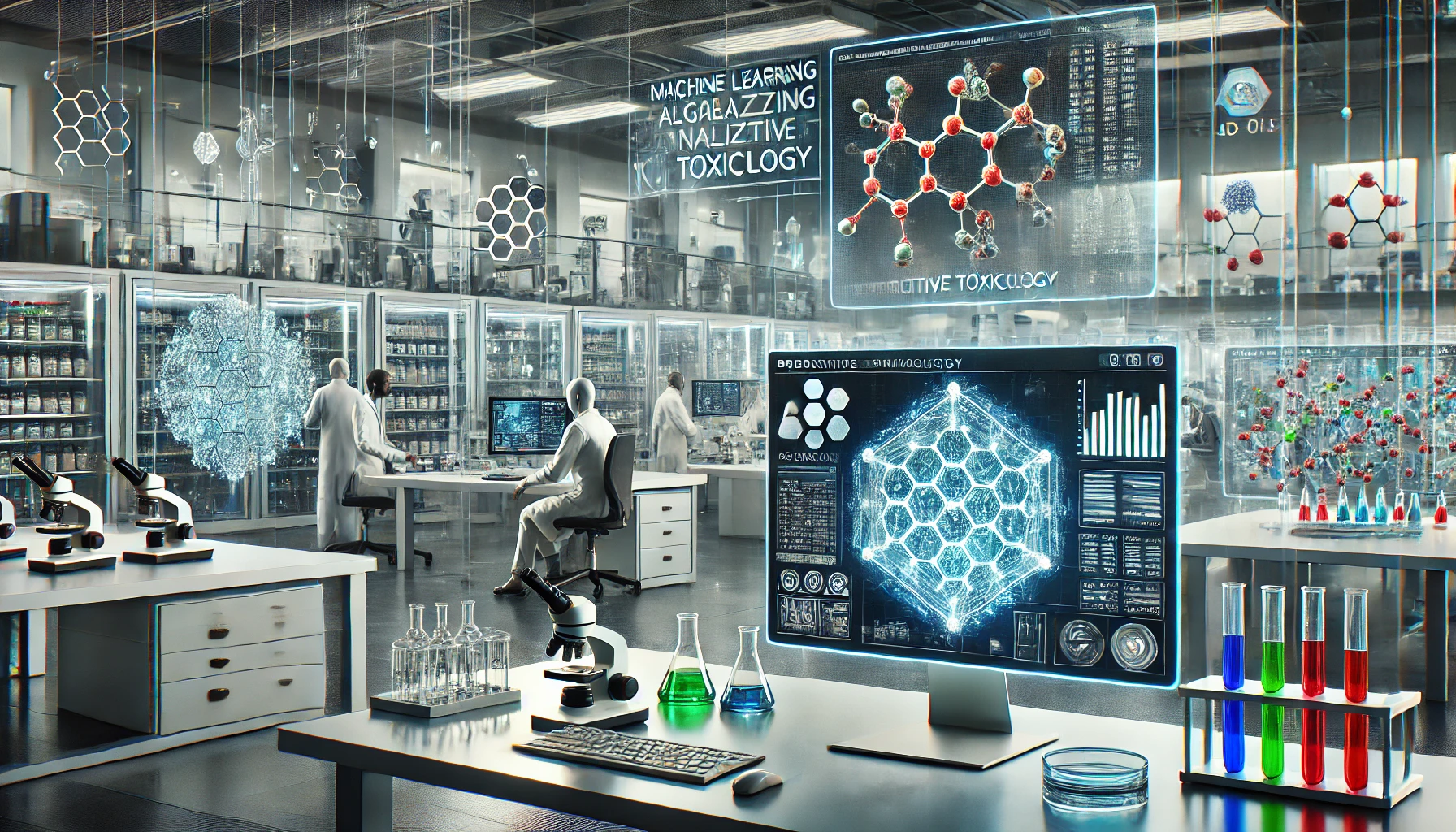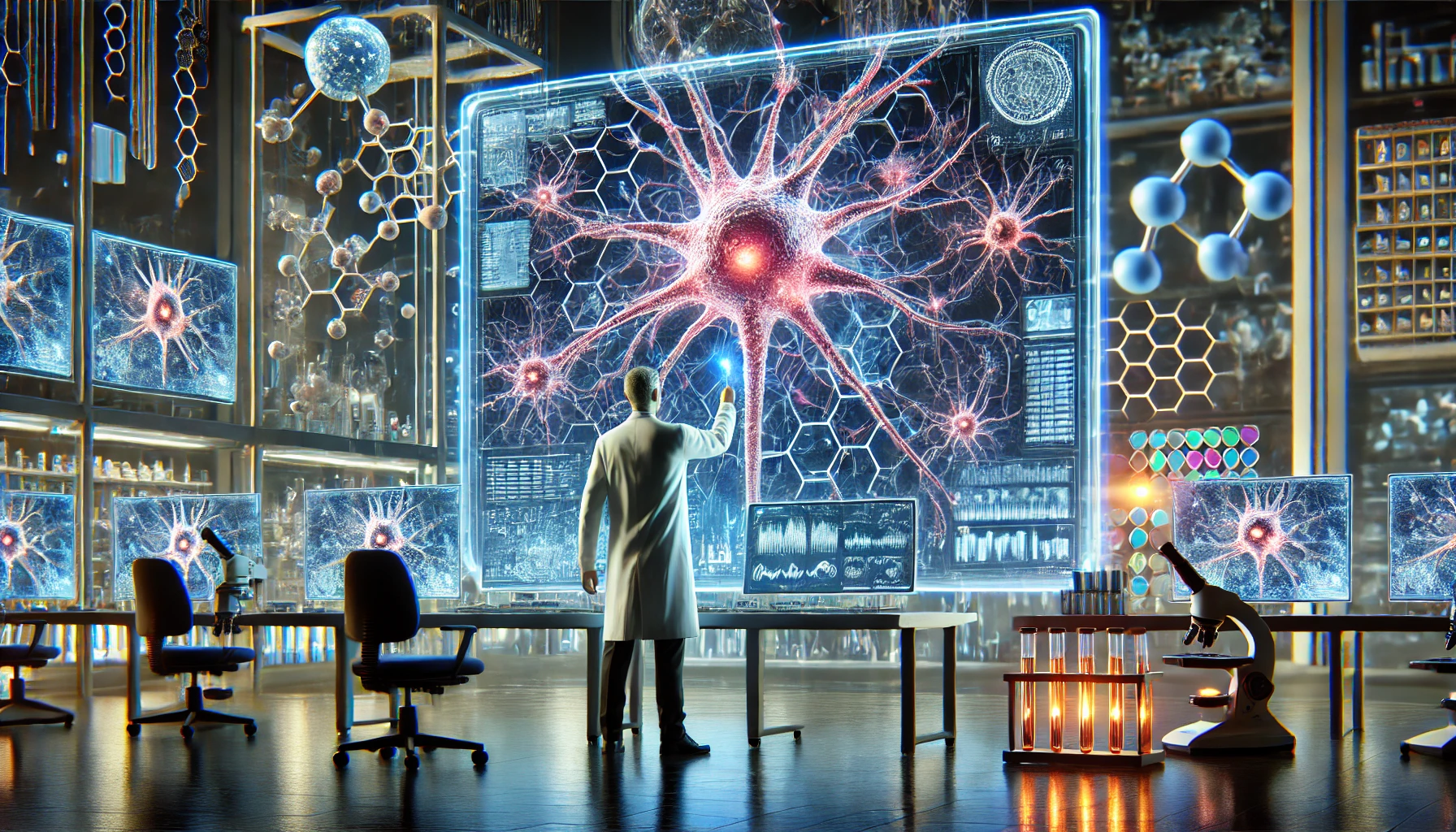Health News
AI drug safety, AI in drug discovery, AI in pharmacology, AI toxicology innovation, chemical risk assessment, clinical safety, deep learning toxicology, drug development AI, drug safety, drug toxicity, Duc Nguyen, machine learning, pharmacology machine learning, predictive toxicology, toxicity models, toxicology AI models
Unveiling BMC Pharmacology and Toxicology’s Special Collection: Machine Learning for Predictive Toxicology
The field of predictive toxicology is advancing rapidly, driven by the need to reduce drug development costs and improve clinical safety. To address this, BMC Pharmacology and Toxicology is proud to announce a new collection titled “Machine Learning for Predictive Toxicology.” This initiative highlights the transformative power of machine learning (ML) and artificial intelligence (AI) in assessing the safety of drugs more efficiently, while minimizing the need for traditional toxicological testing.
With an estimated one-third of all drug candidate failures attributed to toxicity, predictive toxicology plays a crucial role in detecting potential hazards and improving the success rate of drug development. The goal is to integrate preclinical and clinical toxicity data with novel machine learning models to advance the accuracy of chemical risk assessment, reduce costs, and ultimately improve drug safety for human use.
The Role of Machine Learning in Predictive Toxicology
Machine learning algorithms have revolutionized the approach to toxicity assessment by allowing researchers to combine data from various sources—chemical, biological, and mechanistic. This enables more accurate predictions of how drug candidates may interact with the body, eliminating the need for time-consuming and costly traditional methods. By applying deep learning approaches to vast datasets, researchers can model potential toxicities more precisely and develop safer drugs at a faster pace.
However, despite these advancements, the challenge remains in effectively interpreting the multitude of predictions generated by these models. Ensuring accuracy across various platforms while integrating the wealth of data from preclinical and clinical studies is still a key obstacle. This ongoing research is essential for unlocking the full potential of AI-based toxicology and improving drug safety.
Impact on Drug Discovery and Development
The goal of this new collection is to showcase the impact of machine learning and AI on improving the safety and efficiency of drug discovery and development. By embracing these advanced technologies, we can refine predictive models, enhance the clinical efficiency of new drugs, and mitigate toxicity risks at earlier stages of development. This collection will serve as a valuable resource for researchers exploring the intersections of machine learning and toxicology, offering innovative insights that can lead to safer drug candidates and improved patient outcomes.
Key Research Areas in the Collection
This special collection welcomes original research articles that explore the following topics:
- Advancements in machine learning architectures for toxicity prediction.
- Integration of AI in refining predictive toxicology models.
- Studies that enhance the accuracy of chemical risk assessments.
- Applications of deep learning in identifying and mitigating drug toxicity risks.
- Mechanistic models that utilize AI to predict long-term clinical safety.
The research highlighted will demonstrate how machine learning can refine the drug development process, helping researchers identify toxicity issues early on and potentially save millions in development costs.
Meet the Expert: Professor Duc Nguyen
One of the leading figures in this field is Professor Duc Nguyen, an Associate Professor in the Department of Mathematics at the University of Kentucky. Professor Nguyen’s work lies at the intersection of mathematics, molecular bioscience, and data science. He has contributed significantly to developing machine learning models that enhance learning accuracy in predictive toxicology.
Supported by multiple NSF grants and collaborations with Pfizer and Bristol-Myers Squibb, his research focuses on creating high-order models that improve the reliability of AI-based toxicity predictions. His work has earned him a reputation as one of the top 2% of the most-cited researchers worldwide.
Submission and Peer Review Guidelines
This BMC Collection welcomes submissions from researchers interested in machine learning and its applications to predictive toxicology. All articles will undergo rigorous peer review to ensure high-quality contributions to the field. The collection invites Research Articles and other article types accepted by the journal. Submissions should be made through the SNAPP submission system, and during the process, select “Machine Learning for Predictive Toxicology” from the dropdown menu.
This collection aims to foster collaboration among data scientists, pharmacologists, and toxicologists, ensuring that the evolving technology of machine learning is applied effectively to improve drug safety and advance toxicology research.
Conclusion: Embracing AI for Safer Drug Development
The integration of machine learning into predictive toxicology is reshaping the future of drug development. By leveraging AI-driven models, the pharmaceutical industry can streamline the process, reducing costs, improving safety, and ultimately saving lives. This BMC collection serves as a platform for sharing the latest research in this field, encouraging innovation, and guiding the next steps in AI and drug safety.



